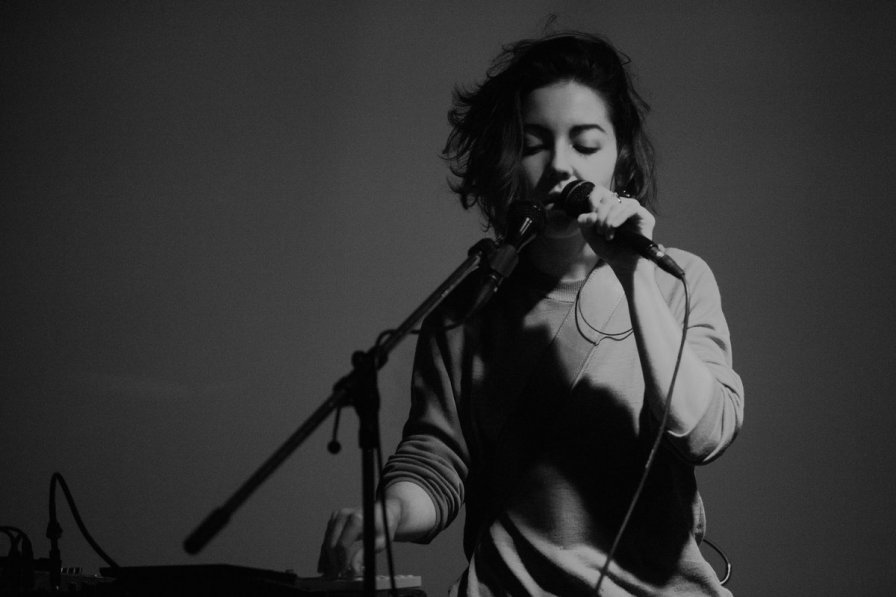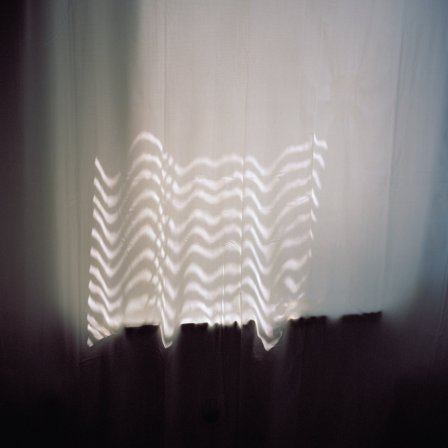Across her two most recent albums, Lucrecia Dalt examined her own personal relationship with select cinematic sequences before translating her interpretations musically. Although these recordings often followed the Colombian artist’s individual thought process and improvisational approach, the results drew comparison to some of her former collaborators (such as Julia Holter and Laurel Halo) in an attempt to categorize a particular style or way of working. The cinematic sequences that Dalt deployed tended to vary over time, and as she moved from Spain to Germany and toured different parts of the world, the influence of those external factors only increased.
Ou documents Dalt’s interaction with yet another selection of films, drawing predominantly on classic New German Cinema. This comes after having received a scholarship to live and work in Berlin, and it was from there that we interviewed Dalt after the release of her previous album, Syzygy. The difference between these two albums is stark, and yet it is easy to discern structures, segments, and particles of sound that undeniably belong to the same artist. But the evolution of Dalt’s arrangement goes beyond her decision to all but remove her vocals; her response to external influence has also played a grand role in the configuration of her material and has systematically directed this most recent aesthetic.
As a musical experience, Ou is magnificent, and it is well worth taking a moment to reflect on how those alterations have shaped it. With Syzygy, Dalt took fragments from films that had moved her emotionally while considering the manner in which the footage might have been manipulated or looped — the way in which a scene was mentally recalled or physically played back. 2012’s Commotus proved to be more compositionally experimental, in that it focused on developing technique through homemade equipment and abstract alignment. The combination of these approaches contributed greatly to last year’s self-titled EP, which proved to be a mesmerizing release in its own right.
On her fist recording for Care Of Editions, Dalt negotiates the texture and the mood of the music while moving away from direct personal experiences and emotions. “I’ve stopped channeling my internal drive into my recordings,” she told Electronic Beats earlier last year. “Now I need external objects and pieces of information around me in order to make music. I need stimuli because the idea of pulling something from ‘inside’ and playing a song in a romantic way became alien to me.” In order to achieve this, Dalt screened movies in her studio by Rainer Werner Fassbinder and Werner Schroeter et al. without sound and composed music based on what she saw — her own observational soundtrack to a series of films.
By screening these films on mute, Dalt took on the role of a witness, of someone who cast their gaze according to their own interpretation as opposed to the primary intention of the screenwriter. The consistency of the film and its visual focus are placed at the forefront of the production, and the specifics portrayed through vocal interjection is minimized (by making this a public spectacle, the reaction of participants may well have also attributed to these observations). Through drastically reducing her vocal input on Ou, Dalt places her listeners into a similar position; her ability to portray feelings of solitude (“ELEANOR”), confinement (“OVER UNITY”), and frustration (“IOT”) are bound up in each of the companion titles that bring this album closer to “en medio” than any of her own past releases.

“FLOTO” is perhaps the most stirring of these, as Dalt’s bass resonates at the beginning of the track before taking a less dominant position “behind” the inclusion of saxophone and clarinet, which later submerge in what feels like electronic rain while the bass is brought back in to meld each section. It’s a bewildering collage that appears to have many layers yet also wonderfully demonstrates an affection for silence, hushed tones, and faint ambience. Indeed, these moments give Dalt that distinctive edge, even when they are followed by wild oscillations or high-pitched frequencies; the quieter side of her music is often the most intriguing, and she demonstrates her enthusiasm for that perfectly here.
It’s the closing track, however, where she makes her mark in exposing one of her most emotive and touching compositions to date. “ELEANOR” is a seven-minute exhibition of elusive patterns and tones that weave ambient, drone, kosmische, and pop tropes together to form a lucid dream pool of sound; there are overriding tones that carry the track along, but they are punctuated by delicate and unexpected jolts, remnants of percussion, and perhaps even a trace of vocal. It invokes feelings of both uncertainty and comfort, where there is nothing assertive to grasp onto except for the most poignant and private insights that Dalt is able to carry on the weight of her most subtle melodies. The track implies a headspace primed for escapism, but it also acts as a reminder as to why detachment from what we feel might not always be a negative response to what we see, even if we can never let go completely.
More about: Lucrecia Dalt




